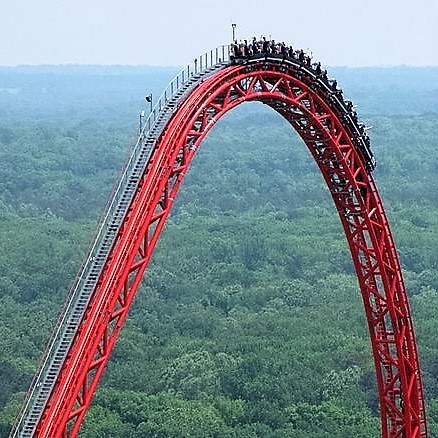
(Introduction / Part One / Part Two / Part Three / Part Four)
Mathematician and visionary Arthur M. Young introduced his book The Geometry of Meaning with the enigmatic words "All meaning is an angle."
Does meaning emerge from the tension of varying angles of perception? And if this is true, what angle of inquiry might be worthwhile to pursue?
In this series of posts, I explore an angle of inquiry that is working its way into collective consciousness -- the confrontation with shadow and its meaning for a new narrative based on inclusion, wholeness, spirit, and sustainable systems.
The shadow is personified by the emergence of Donald Trump, whose narcissism, sociopathic disposition, and lack of discipline have unnerved even traditional Republican Party loyalists. Many in the progressive community are breathing a sigh of relief that such a disorganized, vacillating, and bigoted figure could not possibly win the election. Yet, it is sobering to remember that, even as pundits ponder that he actually wants to lose the election, his polling hovers at 40% of the electorate, and he remains in striking distance of his Democratic opponent. The angle of justification that "he's not perfect but we need him to shake things up" remains a viable political perspective for many.
In what might seem a separate universe, the growing movement for "a world that works for all" is also active, a grassroots phenomenon that is revealing itself in innumerable projects that seek economic and social justice. In a few days, I will be co-hosting a conference in Germany called "Leading as Sacred Practice." It is but one example of efforts aimed at linking self-awareness and social awareness as two interconnected phenomena.
I hope to provoke in this new series of posts a further understanding of shadow as having a collective element. Although the shadow, as described by Jung, has been understood mostly in personal psychological terms, its greater meaning lies in the collective social field. And to understand what is stirred up in the collective, we must go beyond the individual to the tribal and spiritual elements of human behavior. To do so risks some personal discomfort, as our current understanding is challenged, but the reward is an expanded angle of comprehension and a deeper regard for the intermingling of the social and the sacred. To be satisfied with demonizing Trump risks aborting a critical opportunity for learning about the collective situation we face.
Finally, I want to offer a reframe for the meaning of descent. It can refer to a movement downward, even a sudden violent attack. It can also refer to origins, such as the background of a person's family or nationality. All these meanings show up in my writing, but it is the angle of descent that concerns me. If the descent is too extreme, meaning unconscious, it can indeed result in a violent end. However, if the descent allows us to penetrate into the depths of our situation, and we return with greater consciousness, then we will be able to see our situation with new eyes and contribute to our world with new understanding. This is the journey we are all on, managing the boundary between conscious and unconscious awareness. Let it be a joyful one, opening the soul's eyes, embracing multiple perspectives, and joining the company of those we most value and respect.
For more information on the author, go to www.alanbriskin.com